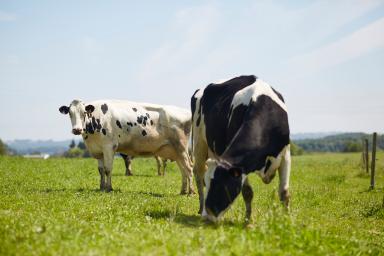Transition cows
During the transition period, trace mineral deficiency can occur, impacting the future health and performance of the herd.
During the transition period, trace mineral deficiency can occur, impacting the future health and performance of the herd.
In the last trimester of pregnancy, there is a natural decline in the trace mineral status of cows due to the increasing demand for trace minerals required during specific periods of change such as:
- foetal development
- milk drying-off and change in udder physiology
- adapting to a new herd group, new pens or various forms of social stress
In the pre-calving period, feed intake declines sharply, so dietary supplementation can be insufficient. Trace mineral stores in the body are under increased demand and can become depleted.
Trace minerals, in particular zinc, copper, manganese, and selenium are vital components of antioxidant enzymes which are required to combat oxidative stress.
Cows supplemented with injectable trace minerals (ITM) during the transition period demonstrate significant improvements in overall herd health throughout lactation.
Machado, V. et al. Effect of an injectable trace mineral supplement containing selenium, copper, zinc, and manganese on the health and production of lactating Holstein cows. Vet. J. 197:451-6 (2013).
Machado, V. et al. Effect of an injectable trace mineral supplement containing selenium, copper, zinc, and manganese on the health and production of lactating Holstein cows. Vet. J. 197:451-6 (2013).
Machado, V. et al. Effect of an injectable trace mineral supplement containing selenium, copper, zinc, and manganese on the health and production of lactating Holstein cows. Vet. J. 197:451-6 (2013).
Machado, V. et al. Effect of an injectable trace mineral supplement containing selenium, copper, zinc, and manganese on the health and production of lactating Holstein cows. Vet. J. 197:451-6 (2013).





